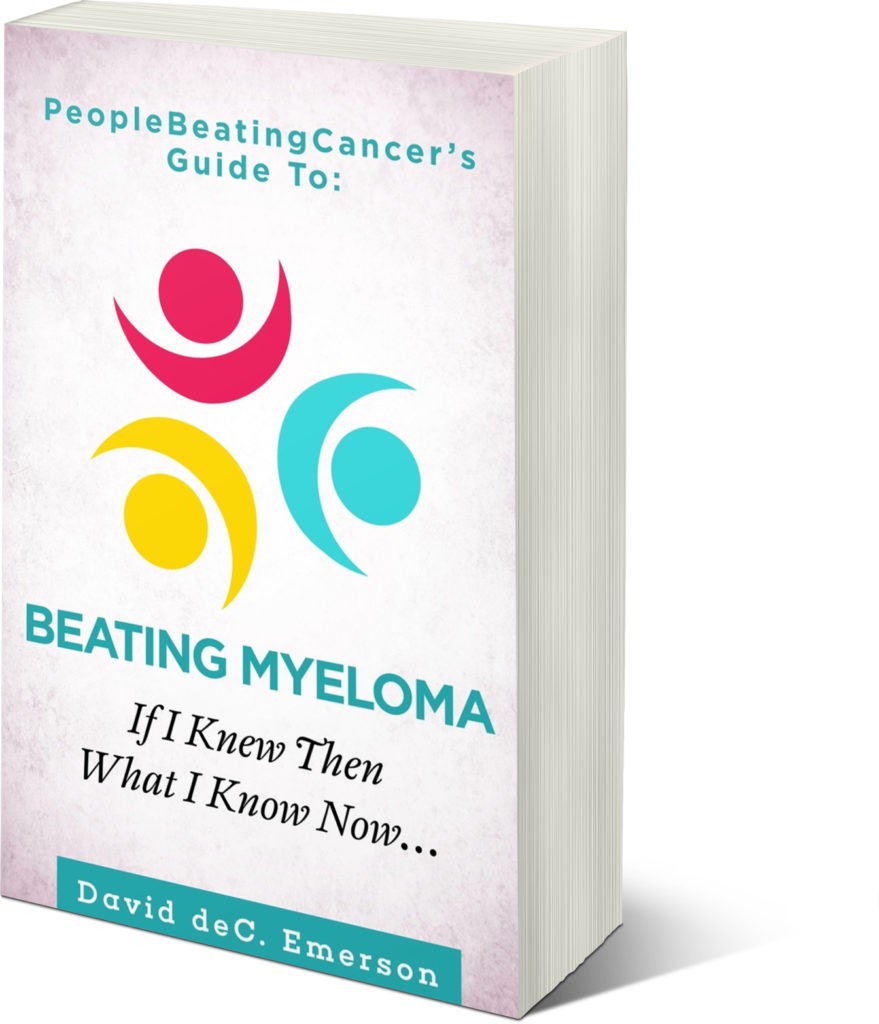
Recently Diagnosed or Relapsed? Stop Looking For a Miracle Cure, and Use Evidence-Based Therapies To Enhance Your Treatment and Prolong Your Remission
Multiple Myeloma an incurable disease, but I have spent the last 25 years in remission using a blend of conventional oncology and evidence-based nutrition, supplementation, and lifestyle therapies from peer-reviewed studies that your oncologist probably hasn't told you about.
Click the orange button to the right to learn more about what you can start doing today.
- You are here:
- Home »
- Blog »
- Caregivers »
- Myeloma Caregivers Need SUPPORT!
Myeloma Caregivers Need SUPPORT!

“By identifying the specific needs of these myeloma caregivers, it will be possible to develop practical initiatives, targeting both health-related and logistical aspects of care, so as to support them in their role.”
Take a diagnosis of cancer, add the incurability of multiple myeloma and voila, myeloma caregivers can be overwhelmed with uncertainty.
When I was first diagnosed with MM, my wife became my primary caregiver. I’m sure that the range of emotions that Dawn felt were similar to many/most myeloma caregivers. She had to deal with everything from being my untrained nurse when she injected me with neupogen shots to having to deal with my Dexamethasone-fueled mood swings. Provding me with love and support every step of the way.
Even after 25 years, my mantra is “I wish I knew then what I know now.” While most of the time I think about therapies, side effects and quality of life issues of myeloma patients and survivors, studies like the one linked below make me focus on one the the most important aspect of surviving myeloma.
In addition to the support identified by myeloma caregivers in the study below, my list of “I wish I knew then…” is as follows:
- Never take anything the MM patient does/says personally- he/she is not themselves…
- Make time for yourself- caregiving is tough- you need time on your own…
- MM is complicated-learn the basics of what do expect- therapies, side effects etc..
- Ask for help-going to onc. appointments, cooking, etc…
- Take care of yourself-caregiving is exhausting…
Are you caregiving a myeloma patient/survivor? Scroll down the page, post a question or comment and I will reply to you ASAP.
Thank you,
David Emerson
- MM Survivor
- MM Cancer Coach
- Director PeopleBeatingCancer
Recommended Reading:
- Refractory Multiple Myeloma
- Multiple Myeloma- Frail Patients Benefit from Non-Toxic Therapies
- Multiple Myeloma and Maintenance Therapy
Caregivers for people with multiple myeloma face mental health challenges
“Caregivers for patients with multiple myeloma may suffer from higher rates of anxiety and depression than patients themselves, according to a new study published today in Blood Advances. While medical professionals have long acknowledged the toll a serious or terminal diagnosis can have on a person’s mental health, few studies have investigated how these conditions affect the family members, friends, and loved ones who care for these individuals…
“Over many years of working with patients with multiple myeloma and their families, I gained a deeper understanding of how much this condition decreases the quality of life of everyone affected by it,” explained study author Elizabeth O’Donnell, MD, a medical oncologist at Massachusetts General Hospital. “Myeloma treatments, like chemotherapies, not only take large physical tolls on those diagnosed with the disease but can place a tremendous financial and emotional burden on patients and their families…”
Uncertainty Common in Primary Family Caregivers of Patients With Multiple Myeloma
“The results of a qualitative interview study revealed that primary family caregivers of patients with multiple myeloma experienced an overarching feeling of “intense uncertainty.” The research was published in Palliative Medicine.
It has been estimated that approximately 10% of patients with hematologic cancers have a diagnosis of multiple myeloma. Although newer treatment have extended survival for these patients, the disease is characterized by remissions and relapses and remains incurable. While family caregivers play critically important roles in the care of patients with multiple myeloma, information on the impact of caring for a family member with this disease is very limited…
In-depth, semistructured interviews were conducted with each study participant. Questions were open-ended and covered 6 areas including:
- the experience of caring,
- physical needs,
- social needs,
- emotional needs,
- spiritual needs, and
- perception regarding health care professionals.
All interviews were recorded and transcribed.
Study findings showed the emergence of 4 main themes:
- a new life and adapting to the disease, which included initial shock and difficulties reaching a diagnosis;
- commitment, related to challenges associated with providing unconditional support;
- the emotional sphere, involving associated fear and anxiety, and
- difficulties finding meaning in the disease and expressing feelings; and
- experiences in relation to the care and support received, such as the importance of relationships with health care professionals and support from friends and family.
Uncertainty was identified as “a core overarching theme.”
“By identifying the specific needs of these caregivers, it will be possible to develop practical initiatives, targeting both health-related and logistical aspects of care, so as to support them in their role,” the authors concluded.”

